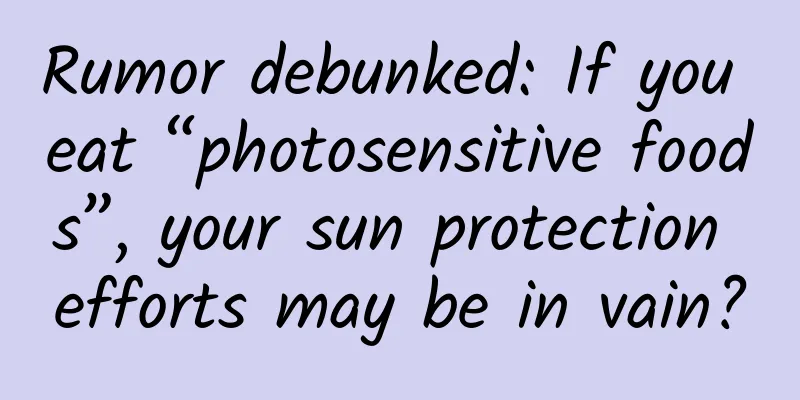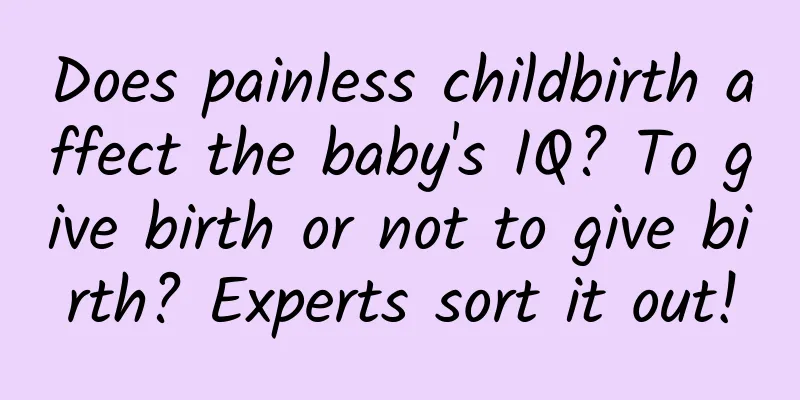Rumor debunked: If you eat “photosensitive foods”, your sun protection efforts may be in vain?

|
In the hot summer, sun protection has become a must for many people's daily skin care. However, you may not know that some foods may make your sun protection efforts go to waste after consumption. These foods are called "photosensitive foods". They contain photosensitive substances that may increase the skin's sensitivity to ultraviolet rays, thereby affecting the effectiveness of sun protection. First, we need to understand what photosensitive foods are. Photosensitive foods refer to foods that contain photosensitive substances. After these substances are digested and absorbed by the human body, they will enter the skin. When the skin is exposed to sunlight, these photosensitive substances may react with the sunlight, causing symptoms such as redness, swelling, rash, itching, burning or stinging on the skin. Therefore, if you eat a lot of photosensitive foods and do not pay attention to sun protection, then the sun protection work is likely to be "wasted". So, which foods are photosensitive foods? Common photosensitive foods include vegetables, fruits, grains and seafood. Among vegetables, fennel, celery, coriander, etc. contain photosensitive substances; among fruits, figs, mangoes, pineapples, etc. are also prone to cause skin reactions; among grains, black rice, buckwheat, red beans, etc. contain more anthocyanins, which may also increase the skin's sensitivity to ultraviolet rays; among seafood, marine fish, shrimps, crabs, etc. are rich in protein and are prone to cause allergic reactions. So, does eating photosensitive foods mean that sun protection efforts will be in vain? Actually, this is not the case. Although photosensitive foods may increase the skin's sensitivity to ultraviolet rays, the complex physiological functions of the human body do not easily undergo chemical reactions. As long as we consume a moderate amount of photosensitive foods in our daily diet and take sun protection measures, such as applying sunscreen, wearing sun hats and parasols, we can effectively prevent the skin from being damaged by ultraviolet rays. In addition, it is worth noting that photosensitive foods are not completely useless. Many photosensitive foods are dark vegetables, which are rich in phytochemicals. Eating them in moderation not only helps maintain health, but also prevents a variety of cancers including skin cancer, liver cancer, and colon cancer. Therefore, we do not need to completely avoid photosensitive foods in our daily lives, but we should learn to match our diet reasonably and maintain a balanced nutrition. In short, eating photosensitive foods does not mean that sun protection efforts will be in vain. We only need to eat a moderate amount of photosensitive foods in our diet and take good sun protection measures to effectively protect our skin from UV damage. At the same time, we must also recognize the nutritional value of photosensitive foods, eat a reasonable diet, and stay healthy. |
<<: Regular glucosamine supplementation may reduce risk of vascular dementia in older adults
Recommend
Does the bath water have to be boiled?
Since many women do not take a bath frequently du...
Vaginal bleeding at 12 weeks of pregnancy
A woman's body is in a relatively important s...
What is normal for vaginal discharge before menstruation?
Women will experience menstruation and leucorrhea...
What causes women to sweat?
Some women with weaker bodies often suffer from s...
What are the soups that are good for women’s health?
Modern society is a society that pays attention t...
What are the effects and functions of Guangxi Huangpi fruit? What are the varieties of Huangpi fruit?
The yellow peel fruit is large in shape, has many...
How long after the ring can I have sex
We all know that giving women an IUD was a popula...
Can I get HPV if I have a fixed sexual partner?
With the popularization of medical knowledge, mos...
Why are your underwear so dirty during pregnancy?
Gynecological problems confuse many female friend...
What should I do if my breasts become sagging and shriveled after childbirth?
It is best for the baby if women choose to breast...
Will a corpus luteum cyst go away on its own? Women, please take a closer look
Among the various gynecological diseases in women...
What is the cause of bean curd-like yellow leucorrhea?
Leucorrhea is very important for women, because i...
Why is there an odor after menstruation and its corresponding solution
Some female friends may have such questions: thei...
Understand chronic sinusitis and win the battle to protect your nasal cavity!
Author: Xia Jiao, deputy chief physician, Beijing...









